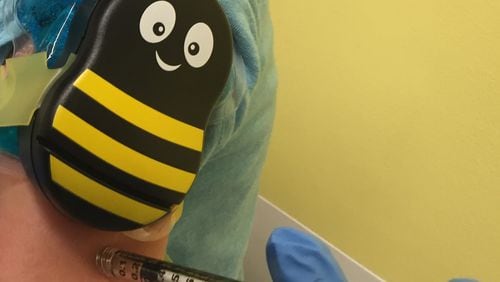No one wants to think about the flu in the last days of summer but that didn't stop retailers like Target, Walgreens, CVS and others from kicking off flu-shot season in mid-August.
You may have noticed those signs for flu shots popping up early and like many people, you may have ignored them. Years ago, the vaccine wasn't even available until fall.
While some health experts have advised holding off on getting a flu shot, on Thursday, the CDC made its position clear.
"Get the shot by the end of October and don’t delay," said Tom Frieden, director of the Centers for Disease Control and Prevention (CDC) at a news conference presented by the National Foundation for Infectious Diseases (NFID).
Frieden noted that health officials are not seeing the kinds of trends they would like to see with the flu vaccine.
While there has been an increase in the proportion of children vaccinated (60%), the proportion of elderly -- ages 50 and over -- has decreased by three percent.
“It is a surprising finding and we hope we can get an effective nasal spray back on the market and available as soon as possible,” Frieden said.
The only option for now is a shot, and fortunately, Frieden says there is plenty to go around with 157 to 168 million doses expected throughout the season. Of two new FDA approved vaccines, one has been developed specifically for the elderly.
The current vaccines, which cover three or four strains of the virus depending on which one you choose, match the flu strains that have been identified so far, but it is too early to predict what will happen as the season hits peak in winter months.
The CDC also recommends that anyone over age 65 should pair a flu shot with a pneumococcal vaccine.







